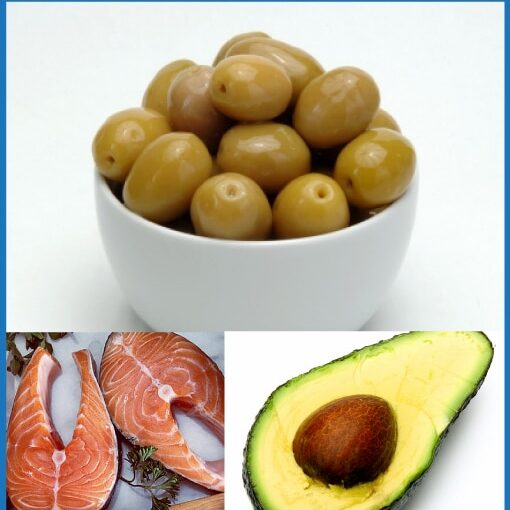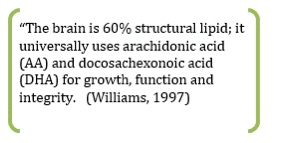Integrative Health|Nutrition
Nutrition for the Childbearing Year: Macronutrients, Micronutrients & Phytonutrients: All About Fats

ALL ABOUT FATS
Macronutrients: Fats
As I mentioned in my last post, our bodies require the macronutrients of proteins, fats and carbohydrates to function well. This week we are focusing on fats and learning about their role in your health and the health of your baby.
What we need and what we don’t
The fats we consume fuel our bodies and are important building blocks for the production of hormones. When I scanned the index of a 1997 nutrition textbook searching for “Fats”, the entry also said “see Obesity”. While this led me to information about the composition and importance of fats in breastmilk, there was almost no discussion of the benefits of fat as part of a pregnant woman’s diet. Further, when I searched for “Fatty acids” and “Lipids” in the index, I found information stating that these are indeed essential, but again there was no mention of the intake of fats in the diet. This way of thinking about fats from 15 years ago likely set the tone for your nutrition!
Many of us may not be aware of the benefits of HEALTHY fats in our diet. If you’ve been fat –phobic, it is time to revisit your body’s needs for the childbearing year and make friends with lipids!
Why do we need fat?
Fats comprise cell membranes and these membranes are the gatekeepers regulating cell function. Cell to cell communication is particularly important for hormones and their receptor sites. Our neurocognitive functions rely on this communication system quite heavily, as well.
Types of fats
Fat sources from foods are comprised of saturated, polyunsaturated and mono-unsaturated lipids in varying amounts. For instance, in a tablespoon of olive oil, there are 10 grams of mono-unsaturated fats and 1.2 grams of poly-unsaturated fats.
• Saturated fats. These are solid at room temperature. Foods high in saturated fats include animal fats like butter and lard and some vegetable oils, such as coconut oil.
• Polyunsaturated fats. These can be found in vegetable oils, like corn and soybean oils, which are high in Omega-6 and fish oil and flaxseed, which are high in Omega-3s.
• Mono-unsaturated fats. These include nuts, nut seeds, olives/olive oil, canola oil and avocados.
• Trans-fats. These are manmade fats that cause inflammation. You can be tipped off when you see “hydrogenated” or “partially hydrogenated” in an ingredient. Essentially, trans-fats are fake food, and we can do without these entirely.
OMEGA-3s and essential fatty acids
There are two types of essential fatty acids, the Omega-6s and the Omega-3s. They cannot be built by the body itself and so need to come from our food sources or supplements, as is so often the case. The Omega-6s can be found in ample amounts (excessive really) in our diet. They are found in polyunsaturated vegetable oils: corn, sunflower, safflower, soy and cottonseed and their job is to encourage inflammation, blood clotting and tumor growth. Omega-6s are ‘pro-inflammatory’ fats.
The Omega 3’s are Docosahexaenoic acid (DHA) and eicosapentaenoic acid (EPA) and are found in fish oils. Alpha-linolenic acid (ALA) can also be found in canola, soybean, flaxseed/linseed, olive oil and walnuts.
Omega-3 essential oils have an anti-inflammatory effect, they break down clot-forming fibrin and they restrict tumor growth, among other functions. DHA, EPA and ALA all offer unique benefits to you and your baby.
Specific benefits to your baby include:
• Retina formation
• Central nervous system development
And, benefits to you are:
• Improved mood and reduced perinatal depression and anxiety
• Reduced incidence of pre-eclampsia, pre-term birth
• Improved cardio-vascular health and reduction in risk of heart attack
• Lower triglycerides
• Lower blood pressure
• Protection against Rheumatoid Arthritis
• Protection against memory loss and Alzheimer’s Disease
The developing fetus needs this stuff and will draw it from the maternal stores. Because pregnancy will drain your reserves, and because too many of us are deficient, paying attention to Omega 3s (DHA & EPA) is a high priority. (Rose, 2009)
What’s next?
In the next post we will discuss the role of carbohydrates in your diet for the childbearing year and beyond.

























